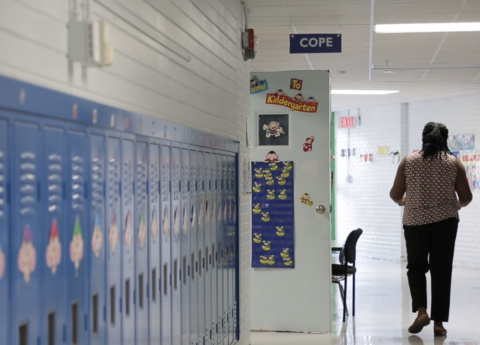Kentucky has made strides over the last few decades to expand access to quality public preschool. The recent State of Preschool 2015 report points out where Kentucky has made progress as well as the huge need that remains unfilled, while taking note of concerning recent trends in enrollment.
Kentucky’s comparisons against other states’ preschool programs vary greatly.
- Kentucky ranked 25th in the report in state spending per child enrolled, and 8th in total spending per child enrolled (which includes a time-limited federal grant).
- The state was tied, however, for the largest percent year-to-year decrease in enrollment, with a decline of 1,842 children from the 2014 to the 2015 school year.
- Our access to preschool ranked 21st for 4-year-olds and 10th for 3-year-olds.
- But only 8.1 percent of Kentucky 3-year-olds and only a little over a quarter of 4-year-olds were enrolled in a public preschool program.
Positively, the report placed Kentucky among a handful of states that pay preschool teachers a salary comparable to K-3rd grade teachers. This is an important step in ensuring a high-quality education experience for participating children.
All 173 school districts in Kentucky have a preschool program and each is awarded state money according to a funding formula. One of the reasons Kentucky ranks so high on total spending per child in the report is that in 2013 the state was awarded a federal Race to the Top – Early Learning Challenge grant which yielded a $44.3 million influx of funds. The state is using this money to expand an early childhood care and education (ECCE) quality rating system called STARS that would assess the quality of all early childhood care and education – including day care, Head Start and public and private preschool.
These grant funds are on top of the state appropriation of $71.7 million in the 2015 school year and the federal grant money runs out at the end of 2017. However, the public preschool budget was boosted 26 percent in the 2016 school year at $90.1 million, so state per-child spending will be higher in next year’s report. The 2017-2018 budget years hold preschool funding steady at 2016 levels, but with $7.5 million set aside as a grant for collaboration models between public preschool and private child care providers.
A wide body of research has shown high quality ECCE has a lasting, positive impact on a child’s life; some research has shown that the return on ECCE investment for society is as high as $7 for every $1 invested. A provision in the 2016-2018 budget bill would have increased eligibility to Kentucky’s preschool programs for families earning up to twice the poverty level, but that provision was vetoed, shutting out an estimated 1,000 children. Future decisions about preschool funding should maintain and even improve on the quality of early childhood education, while making it available to more children.



